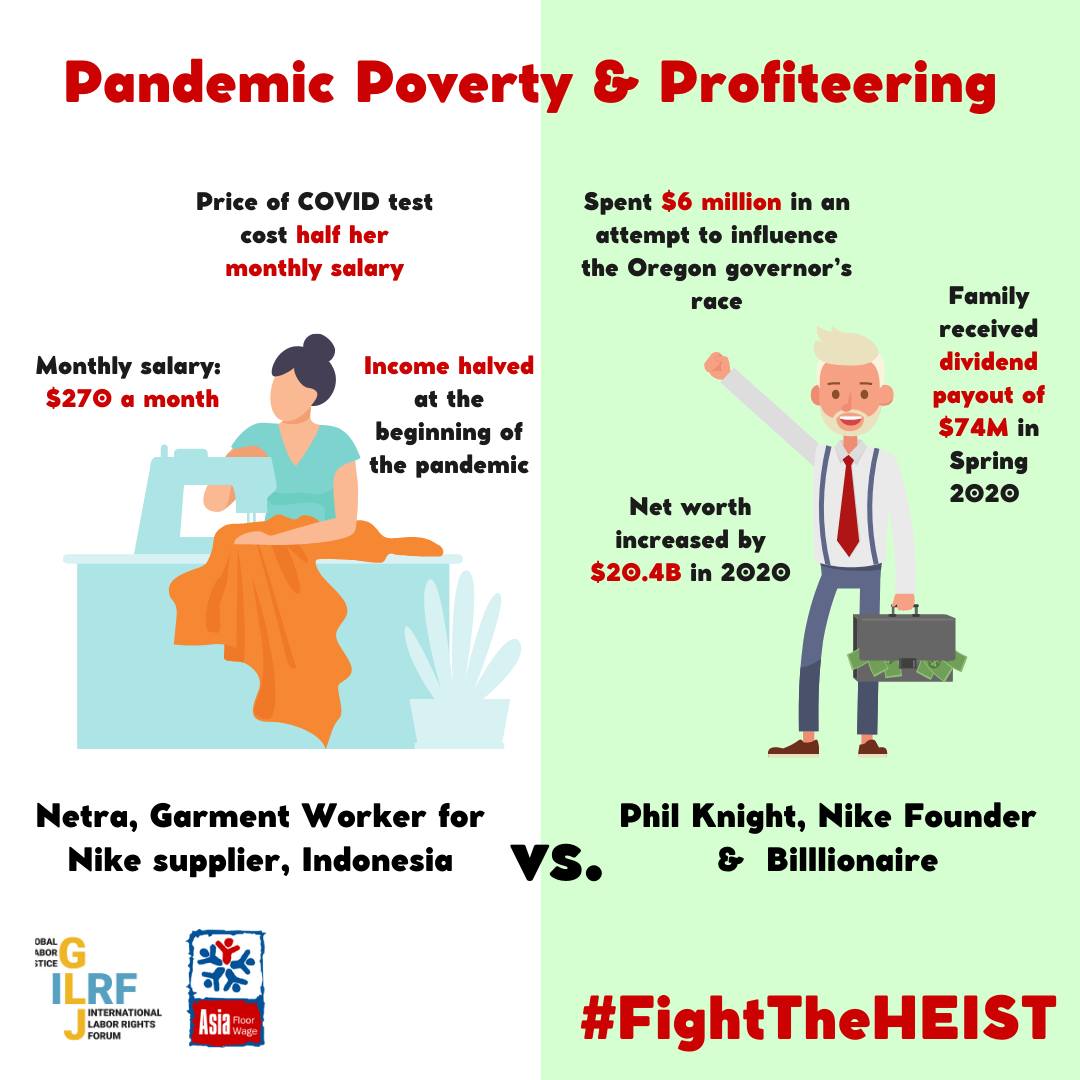Newsletter No.14 - Fashion or Trashion?
Kenya's secondhand clothing avalanche, the tenth anniversary of Rana Plaza and much more
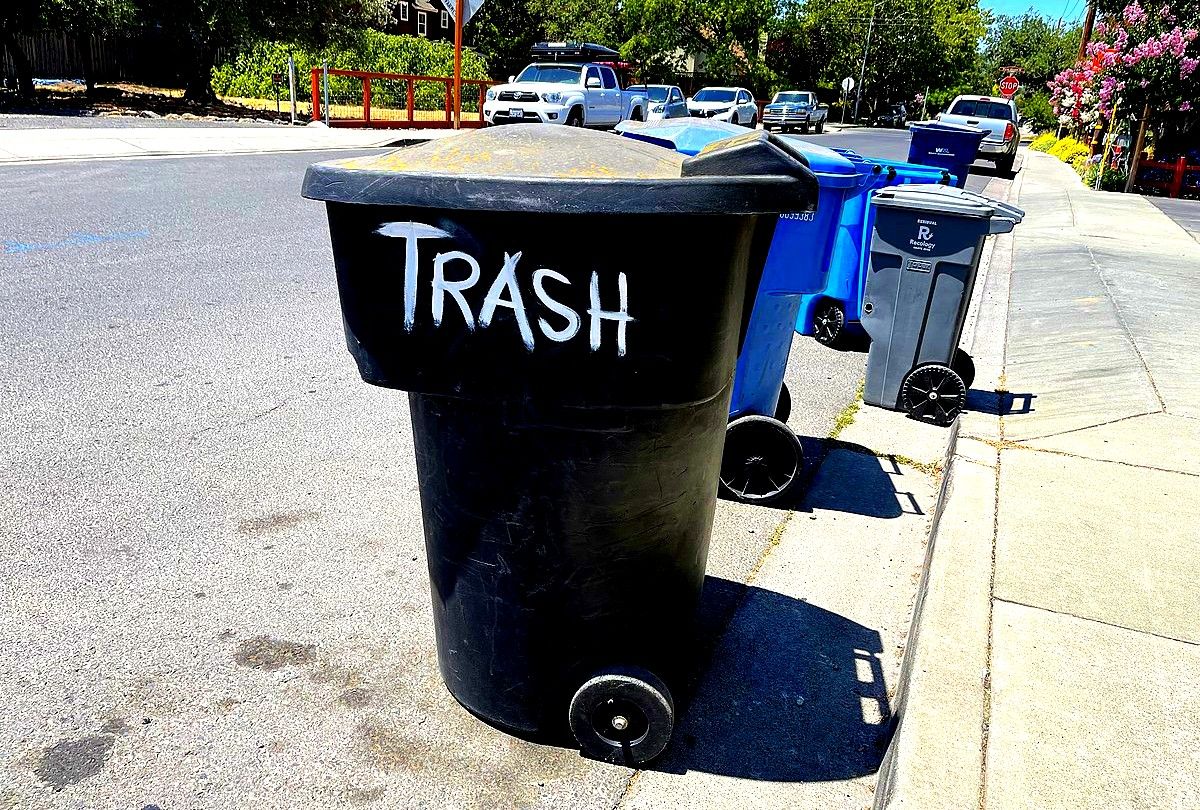
Hello,
Yikes - I never intended not to write to you for three whole months. I've been writing loads since January - not quite a new book but a theoretical piece of work about the fashion industry which I cannot wait to share. That's my excuse for the gap - but now we're back just in time for the Equinox and I hope you've been well. This month we have some important news, a piece I've written on waste with really interesting interviews, and Notes From The Profit Margins.
I want to start by looking ahead to next month. April 24th 2023 marks the tenth anniversary of the Rana Plaza factory collapse in Bangladesh which killed 1,138 people and injured many thousands more. There will be events around the globe marking this date. Here in the UK we have founded the Rana Plaza Solidarity Collective and have a programme of events for people to join including vigils, film screenings, public meetings and photo exhibitions. These events will commemorate the lives lost as well as highlight ten years of resistance and the struggle for justice by family members and garment workers. Online you'll find event posts tagged with #RanaPlaza10YearsOn I hope you can make some of the events, or if you organise your own, I'd love to hear about it.
The site also includes a brief essay called Why Did Rana Plaza Collapse? which explores the context of the deadliest unintended structural failure of modern times.
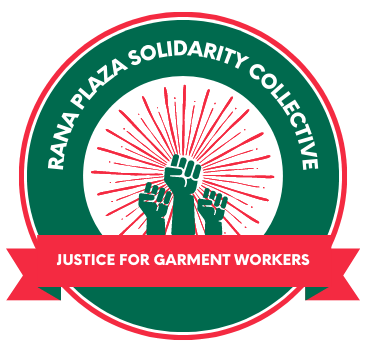
Trashion in Kenya - time for restoration and reparations
One definitive lesson from Rana Plaza is that the fashion industry places more value on the clothes it sells than on the lives of the people making them. But every now and again images and testimony show that while the fashion industry doesn't value people, it doesn't value the clothes much either.
The recent Trashion report from the Changing Markets Foundation makes for grim reading. It explores the consequences of an estimated 900 million items of clothing being exported to Kenya each year. 300 million of these items are estimated to be damaged or unsellable and made of synthetic fibres, ending up dumped in rivers, landfilled or burned, and exacerbating the plastic pollution crisis.
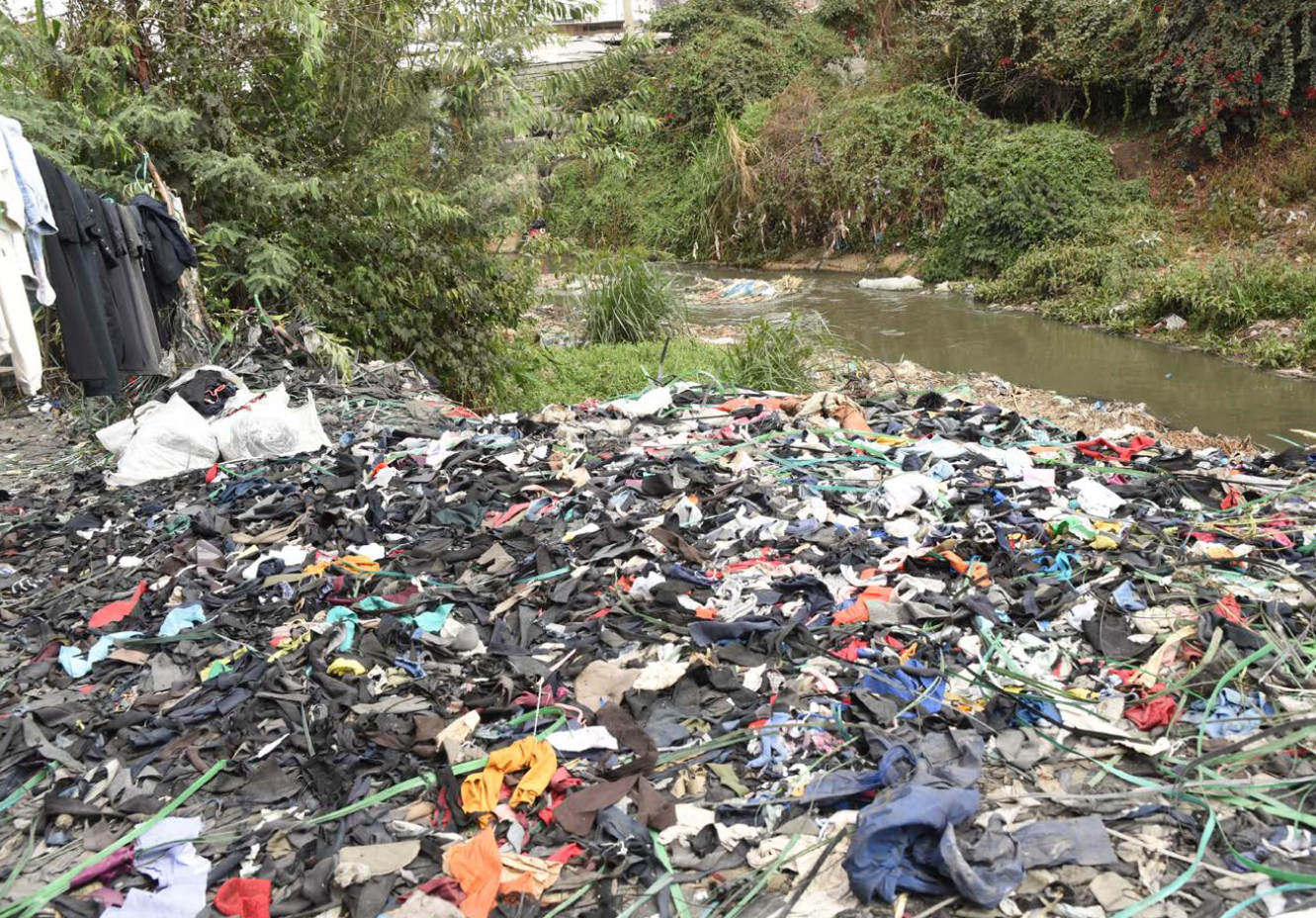
UN Comtrade stats show Kenya imported 183,505,631 kilograms of used clothes in 2021. This avalanche is sold sight-unseen in 40kg bales. Once in Kenyan warehouses they are resorted by quality and parcelled up to be sold to market traders who sell them in Kenya’s mitumba markets. The worst of the clothing ends up as fagia – Swahili for the unsellable garments that typically end up as rags or burnt for fuel.
Analysis of some of these 40kg bales, which typically contain 200 bits of clothing, allowed Changing Markets to estimate that in 2021, 458 million imported garments were waste, and up to 307 million likely contained plastic-based fibres.
This is bad for two key reasons. Firstly, the exporting of plastic from Europe is supposedly restricted by the Basel Convention, but this research shows the Convention is being flouted with devastating consequences. Secondly there is a myth that exported secondhand clothing ‘goes to the people who need it’ as if it were given away as charitable donations. What actually happens is that market traders – some of the poorest people in Kenya – pay good money to buy bad Global North clothing waste and half of what they get is unsellable. This is important because without the African market there would be no secondhand clothing industry – it is where the profits come from and yet the people who provide the profits are treated appallingly.
In this twisted commodity chain, money from impoverished Kenyans flows up and out of the country to the bank accounts of secondhand clothing exporters in the Global North while what flows into Kenya is an unmanageable toxic waste stream unsupported by the regional infrastructure needed to deal with it.
This is a situation that is very familiar to Elmar Stroomer, who founded Africa Collect Textiles (ACT) with his colleague Alex Musembi. ACT was founded a decade ago in Kenya on the belief that every country needs its own secondhand clothing recycling system.
“Currently the business model is only interesting for rich nations because rich nations sell the wearables to poor nations,” Elmar says. “Poor nations will never be able to catch up because the money is leaving the country for the rich nations that then set up a circular economy for themselves and buy the necessary machinery.”
Elmar describes a situation where the “poorest of the poor on this planet are coughing up money” that goes to collectors, sorters, and governments – money that he sees being invested in innovating around better sorting or better processing of textile waste in the Global North but not Kenya. “The question is - does Africa really need to pay for that? Should there not be first a baseline of textile collection and recycling in African nations? Is that not a bigger win than trying to fine tune systems in the Netherlands or in the UK?”
ACT say it would cost €20 million to process what the UK dumps on Kenya in a single year. Alex Musembi wants to see investments into textile recycling in Africa at least reflect the percentage of the profits generated from selling secondhand clothes to African nations: “The EU and the Global North need to invest here in local infrastructure. It’s very difficult to get that money – unless people are willing, unless there are laws, or unless people are shouting more – that is when they will do it. The Global North must make sure something is done – that means investing money into Africa.”
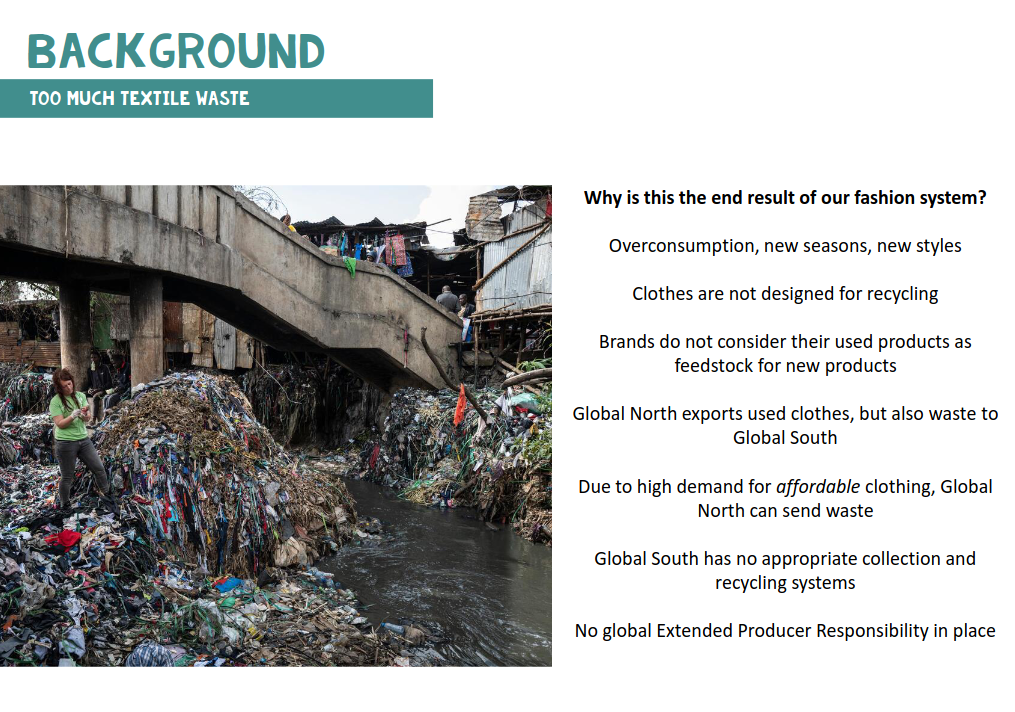
What Can Be Done?
“First, there must be a waste tax on each item for the mitigation of waste, which is already sort of happening in France and Netherlands and Sweden," Elmar says. "Then at least a big chunk of that money has to go to African nations to solve the problem and not only for the future clothing, it has to be used to restore rivers which will cost millions. This is about setting things right – it’s a restore and reparations situation.”
While funding must be directed to set up structures that prevent textile waste ending up in rivers, oceans, landfill and fires, there must also be much tougher legislation on what kind of materials can be used to make clothes.
Elmar says eco-design, that avoids microplastics and synthetic mixes should be mandatory because otherwise clothes have no value at the end of their use cycle. “When the big brands make a garment they know that in Kenya, whether it is worn or not, it is completely waste because it cannot be recycled.”
He is also calling for legislation because even the best technologies cannot keep up with the industry: “It is always like ‘the market has to come up with recycling technologies,’ but you cannot do this for every specific material. Every week there's a new a new thing launched - the recycling sector cannot keep up.”
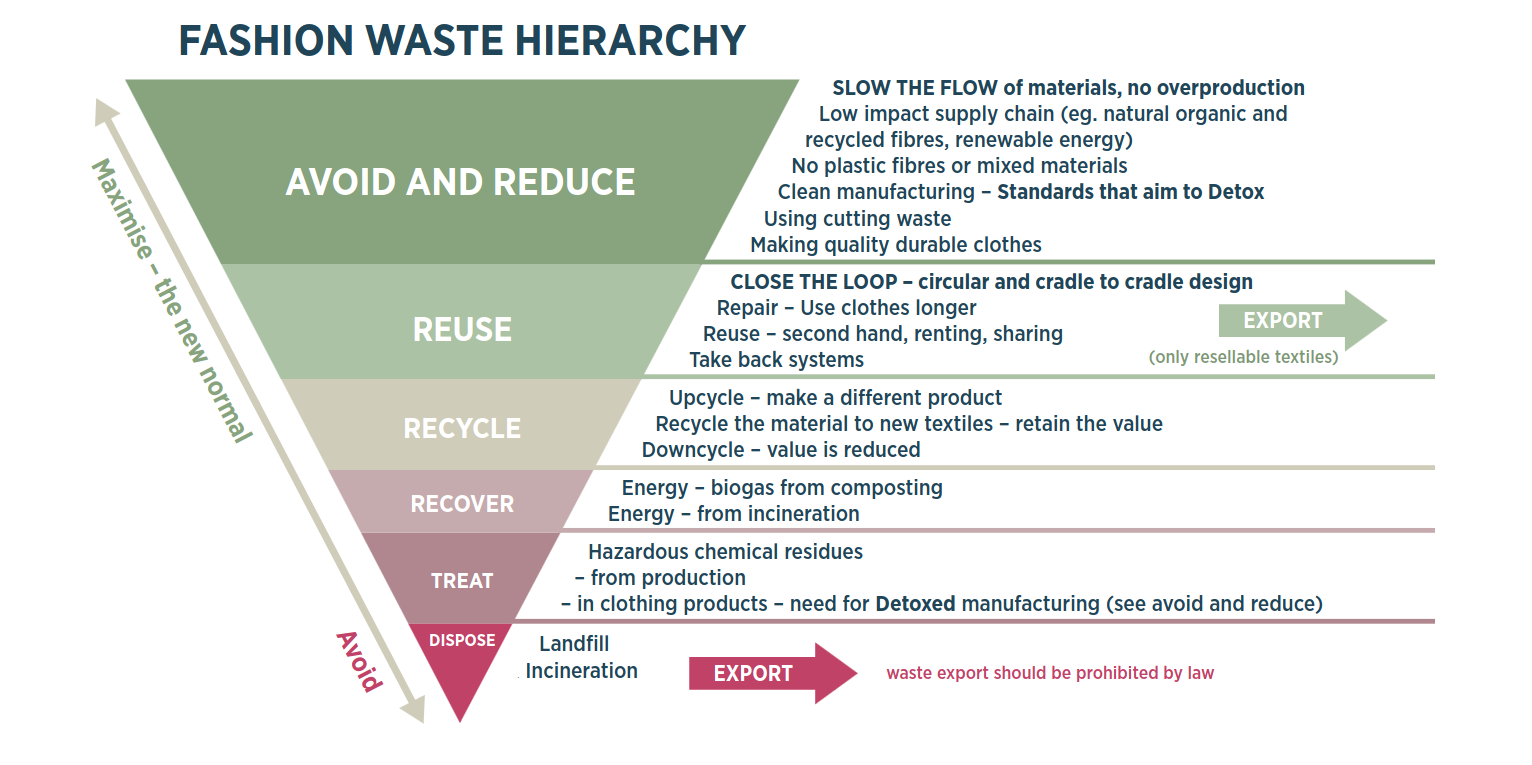
Notes From The Profit Margins
These are some of the things I am keeping my eye on in the industry right now.
- This new fact-finding report - Threads of Injustice: Investigating the precarious working conditions of garment workers in selected Export Processing Zones in Sri Lanka
- This new AFWA report on wage theft and the #FightTheHEIST campaign, and an accompanying article.
- The battle to get adidas to stop stealing from workers - https://adidassteals.com/
- This article: The Boring Truth Behind The Gender Pay Gap
- I'm not into horror movies but if you want to read about Freddie Krueger battling the dude from Friday 13th then here you go:
/cloudfront-us-east-2.images.arcpublishing.com/reuters/VZSIB6MFZ5II3M6YE3HK457UFY.jpg)
- This great article about the legendary women of the Grunwick strike: 'In August 1976 a group of Asian immigrants in London began a strike that would define an era...'
- I liked seeing Boohoo's panel getting disrupted by fashion activists.
- And finally - this is not a product placement(!) but these rucksacks made by Africa Collect Textile from the trousers of elephant rangers in Kenya are so cool, check out the one minute video of how they are made.
Book relevant news from me
- I recorded a podcast with One Planet on the extractive, exploitative nature of the fashion industry, plus fashion activism and not being too hard on yourself. Thank you to Mia Funk & Bianca Weber.
- Over at Pluto The Anti-Capitalist Book of Fashion is currently 40% off for Women's History Month.
- I joined a very cool panel at the Institut Français' Night Of Ideas, which you can watch here. Great questions and useful answers.
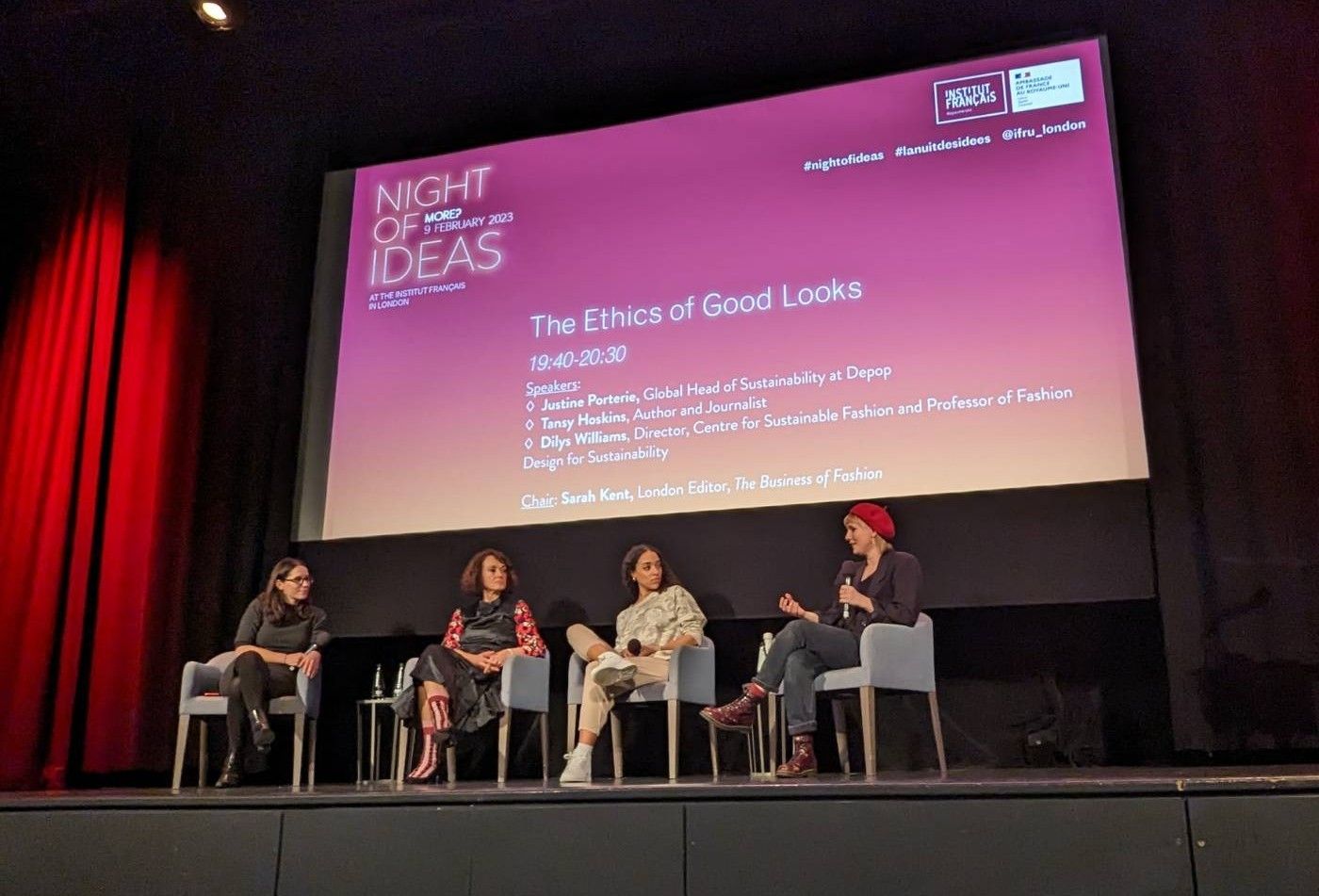
I am grateful to you for reading, please forward this newsletter to anyone you think might be interested. Back soon!
In solidarity, Tansy.
p.s. Went to a great gig lately - my friend's band The Franklys launched their new album Dogma. Find it here.

p.p.s. Just look at the state of this. We can do so much better:
